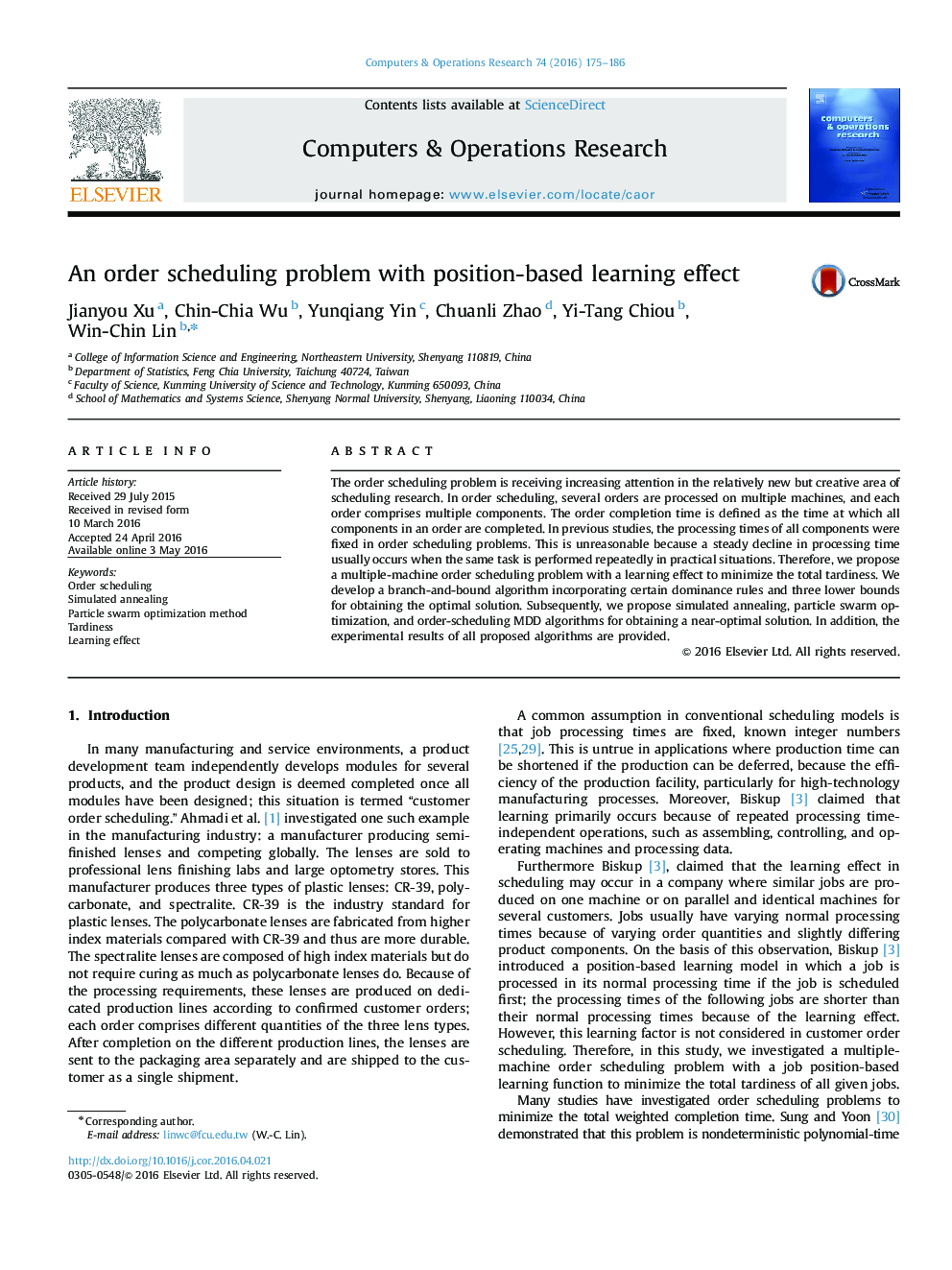| Article ID | Journal | Published Year | Pages | File Type |
|---|---|---|---|---|
| 6892788 | Computers & Operations Research | 2016 | 12 Pages |
Abstract
The order scheduling problem is receiving increasing attention in the relatively new but creative area of scheduling research. In order scheduling, several orders are processed on multiple machines, and each order comprises multiple components. The order completion time is defined as the time at which all components in an order are completed. In previous studies, the processing times of all components were fixed in order scheduling problems. This is unreasonable because a steady decline in processing time usually occurs when the same task is performed repeatedly in practical situations. Therefore, we propose a multiple-machine order scheduling problem with a learning effect to minimize the total tardiness. We develop a branch-and-bound algorithm incorporating certain dominance rules and three lower bounds for obtaining the optimal solution. Subsequently, we propose simulated annealing, particle swarm optimization, and order-scheduling MDD algorithms for obtaining a near-optimal solution. In addition, the experimental results of all proposed algorithms are provided.
Related Topics
Physical Sciences and Engineering
Computer Science
Computer Science (General)
Authors
Jianyou Xu, Chin-Chia Wu, Yunqiang Yin, Chuanli Zhao, Yi-Tang Chiou, Win-Chin Lin,
